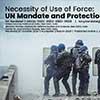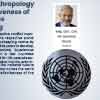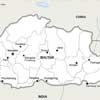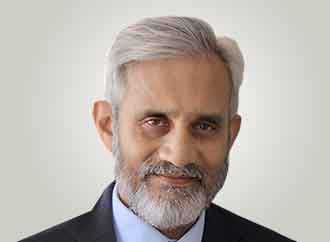Introduction
In one of his speeches, Prime Minister Benjamin Netanyahu of Israel had made a statement of Israel’s future plans for Gaza, in which he made an interesting declaration. The central theme of his plan was the ‘de-radicalization’ of Gaza. However, it was not articulated on how this was to be implemented by Israel. Going by recent developments and events, it seems that the effort was predominantly military. The term, ‘de-radicalization’ while often used in counterterrorism and social reform contexts, carries deep sociopolitical and psychological implications. In this article, I wish to dwell on this aspect of de-radicalization and examine what it truly entails, drawing on relevant historical experiences.
Understanding Radicalization and De-Radicalization
Radicalization of a society or a section of the population does not occur overnight. It is the cumulative result of long-standing grievances, marginalization, perceived injustices, and ineffective governance. The primary causative factor is often inept statecraft — the inability of the state to respond empathetically, inclusively, and wisely to the needs of its people.
Likewise, de-radicalization is not a short-term exercise. It is a monumental and transformative process that can span generations. The emotional, cultural, and ideological wounds of a community cannot be healed through quick-fix political measures or heavy handed military strategies. True reconciliation demands long-term commitment, patience, and continuous engagement that nurtures trust and inclusion.
Governments often seek immediate political gains through visible, short-term actions within their limited tenures. However, genuine de-radicalization requires sustained efforts over decades — efforts that survive political changes and remain consistent in purpose and direction.
The Role of Statecraft
De-radicalization begins with sound and sensitive statecraft. The state must demonstrate fairness, transparency, and inclusivity in governance. Policies must promote equality and address disparities across religion, caste, ethnicity, and region. When people feel alienated or discriminated against, they become vulnerable to extremist ideologies that exploit their grievances.
It must also be recognized that the transformation of societal attitudes takes one or two generations. In the interim, leadership must ensure that policies remain stable and are implemented without interruption. Inconsistent or reactionary approaches have reversed hard-earned gains.
Lessons from India in Mizoram and Nagaland
India’s experiences in the Northeast, particularly in Mizoram and Nagaland, provide valuable lessons in managing radicalization. These regions once faced intense insurgencies driven by ethnic aspirations, historical grievances, and alienation from the mainstream Indian polity.
In Mizoram, during the 1960s, the insurgency escalated to such a degree that the Indian Air Force was also employed in counter insurgency operations, under ‘Operation Jericho’— an unprecedented step within the country. Villages were forcibly regrouped into ‘Group centres’ to curb insurgent mobility. These measures temporarily reduced violence but left a deep psychological scar on the local population. The generation that witnessed such harsh action harboured deep and enduring resentment against the state and the armed forces.
Having served in Mizoram in the early 1980s, I personally observed this simmering resentment. Yet, over time, through patient and visionary statecraft, the government succeeded in changing the narrative. The Mizo Peace Accord, signed in 1986 under Prime Minister Rajiv Gandhi, marked a historic turning point. It ushered in an era of stability, reconciliation, and development. Today, Mizoram stands as a model of peace and integration — its youth are well-educated, cosmopolitan, and deeply integrated into India’s national fabric.
Nagaland, too, once epitomized deep-rooted radicalization. Although some undercurrents of separatism persist, they have significantly weakened over time. The signing of ceasefire agreements and the gradual introduction of economic and developmental initiatives have helped transform the social landscape. The new generations in Nagaland and the Naga dominated areas of Manipur increasingly identify with India’s developmental journey rather than separatist ideology.
This transformation, though incomplete, demonstrates that consistent political dialogue, coupled with socio-economic inclusion, can succeed where military suppression alone cannot. The small pockets of militancy that still exist are now motivated less by ideology and more by personal gain or power struggles.
Application to Gaza and Israel
Applying these lessons to the Gaza context, Israel’s aspiration for de-radicalization must acknowledge the historical and emotional depth of Palestinian grievances. Decades of conflict, displacement, and loss have embedded a collective memory of suffering that cannot be erased by force or political decrees.
Israel, therefore, will need to commit to a generational strategy — one that integrates Palestinians into the broader framework of economic and social development. This involves ensuring access to education, livelihood, dignity, and self-determination within a secure and just environment. Only when tangible benefits of peace and growth become visible will the appeal of radical ideology begin to fade.
True de-radicalization in Gaza will not be achieved through domination, but through empowerment. Israel will need to balance its security imperatives with humanitarian sensibility and political foresight — a task easier said than done, especially so in an environment of anti-Semitism sponsored by radical ideologies in and around the Region. But then this is the complex challenge that the state of Israel has to grapple with to find novel comprehensive solutions for lasting peace.
Conclusion
The path to genuine peace lies in consistent engagement, economic inclusion, and empathetic governance rather than intermittent security operations or populist political promises.
The Indian Army’s enduring presence in conflict-affected regions provides a valuable repository of institutional memory and lessons learned. This continuum of experience must be leveraged to ensure that deradicalization efforts remain coherent, informed, and insulated from short-term political cycles.
Ultimately, de-radicalization is not merely a political or military project — it is a human one. It demands patience, benign and enduring political will, and a shared vision of coexistence. Whether in Gaza, or in India in the Northeast, or Kashmir, sustainable peace will emerge not from fear, but from faith — faith in justice, inclusion, and the possibility of reconciliation.
Download this Article in PDF































